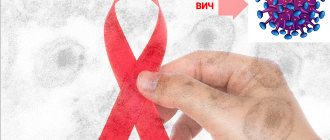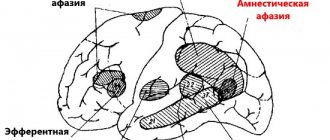Bulimia - what kind of disease is it? Symptoms and treatment of bulimia
Bulimia - what kind of disease is it? It's simple - it's a mental disorder associated with an eating disorder. In medical practice, it began to be considered as an independent disease relatively recently. The main manifestation of bulimia is bouts of overeating, in which a person is able to consume large amounts of food without feeling full.
After relapses, bulimics feel guilty and try to get rid of what they have eaten in various ways, for example, by taking laxatives or inducing vomiting. Such behavior inevitably leads to exhaustion of the body and the development of many complications from various internal organs.
Reasons for development
Despite the fact that the disease has been known to mankind for quite a long time, the reasons for its autonomous occurrence still remain insufficiently studied. Therefore, modern medicine adheres to the following, the most likely causes of the development of the disease, namely:
- low self-esteem inherent in upbringing or in the process of growing up, which provokes stress, a state of constant self-doubt,
- severe stress in which a person remains for a long time and is unable to eliminate the cause that caused it,
- disruption of metabolic processes in the brain due to prolonged action of a toxin or chronic poisoning by chemicals,
- Bulimia most often affects people who, as children, were deprived of food as punishment for an offense, or, conversely, rewarded for success with additional dishes,
- family history (one of your close relatives has been diagnosed with bulimia).
Bulimia is the opposite of anorexia. People suffering from bulimia are much more difficult to identify than people with anorexia or binge eating disorder, because they usually maintain a normal weight and health status. Their behavior in the intervals between attacks may be no different from healthy people.
However, more often, patients with bulimia are characterized by almost complete lack of control, and, even between attacks, a tendency to excessive use may manifest itself in relation to alcohol or medications.
Prevention of bulimia and video about the disease
After recovery, prevention of bulimia includes a healthy, adequate and favorable family environment. It is strictly forbidden to use food as a method of punishment or reward for children. Parents of teenage children should especially carefully monitor the weight and nutritional habits of their child. If excess weight is noticed, the child must be switched to a diet prepared by a nutritionist in order to avoid the development of bulimia in the future.
This video about bulimia will help you learn more about the causes, signs of the disease and methods of its treatment:
Bulimia nervosa
There are only a few people who are satisfied with their appearance and not everyone can come to terms with it. In pursuit of an ideal figure or after relieving nervous tension, people fall into the trap of bulimia.
How does this happen? After starvation or nervous overstrain, a person pounces on food, without the willpower to stop. For this reason, people become addicted to bulimia nervosa. Personalities who suffered from bulimia nervosa include Princess Diana, the famous fashion model Twiggy, Ernest Hemingway's granddaughter Margot Louise, fashion model Kate Moss, Elvis Presley, aerobics presenter and actress Jane Fonda.
The causes of bulimia nervosa lie in a constant state of stress, in a person’s vulnerability and uncertainty, as well as in loneliness and constraint by various conventions. That is why the very process of eating food brings joy and satisfaction to a person.
Causes and risk factors
The causes of bulimia are mainly psychological in nature, but there are also physiological and organic factors that provoke this disease.
The occurrence of bulimia in most cases is explained by moral trauma or mental discomfort that the patient received or experienced in the past, for this reason there were failures in the “hunger-satiety” system.
Psychological traumas received in childhood that can cause bulimia:
- regular and prolonged feeling of hunger in infancy;
- parents’ beliefs that the child is too fat and should lose weight;
- lack of care and love from mother and father;
- difficult relationships with peers, bullying and bullying at school;
- food rewards for success, good behavior and grades at school.
In the examples above, food begins to be seen not as a need, but as a comfort and pleasure. Eating is safe, enjoyable and affordable. As a result of the formation of such an attitude towards food, it violates the main principle of proper nutrition - “Eat when you are hungry”, which causes disruptions in the functioning of the hypothalamus, which is responsible for the sensations of hunger and satiety.
In adolescence, young adulthood and adulthood, bulimia can also be caused by some social factors:
- An obsessive desire to meet modern beauty standards. The standards of appearance imposed by society, appropriate advertising, and the popularity of social networks in which users share their attractive photos make many people experience inferiority complexes and strive to meet the standard.
- Tactless remarks, jokes and comments about excess weight from people in your close circle. Suspicious and touchy people are sensitive to this kind of statements, worry about them for a long time and, ultimately, can decide to take extreme, unreasonable measures.
- Constantly comparing yourself with an attractive person from your environment, competing with him. It can be either a close person or a distant acquaintance or neighbor. A person prone to bulimia tries in every possible way to show that he is better, tries to look more attractive.
Physiological and organic reasons for which bulimia may occur:
- Metabolic disorders in general.
- Metabolic syndrome is a complex of changes in the metabolism of fats and carbohydrates, accompanied by an increase in a person’s weight and an increased risk of developing cardiovascular diseases.
- Diabetes. Impaired glucose absorption can often cause eating disorders. In addition, a certain diet for diabetes can provoke bouts of overeating in patients, who may even consume foods that are prohibited for them.
- Neoplasms in the hypothalamus or its toxic lesions.
- Pituitary cachexia is a pathology of the pituitary gland and hypothalamic nuclei, due to which the production of neurohormones of the pituitary gland and hypothalamus is reduced. Most often, damage to these areas occurs after infections: syphilis, tuberculosis, typhoid, malaria and others. In addition, the disorder can occur after surgery, against the background of vascular pathology and traumatic brain injury.
- Hereditary factor. The possibility of bulimia increases in individuals who have several relatives suffering from this disorder. This is due to genetic characteristics of the function of the endocrine system and a deficiency of hormones responsible for regulating feelings of hunger and satiety.
- Nutrient deficiencies caused by frequent dieting. With severe restrictions on food consumption, a person is very often unable to think about anything other than food. At one point he breaks down and starts eating uncontrollably. In this way, the exhausted body tries to restore strength and replenish nutritional deficiencies.
Suspicious and anxious individuals are most prone to developing bulimia, especially those experiencing feelings of guilt, low self-esteem and inferiority complexes, who are unable to fully experience satisfaction with certain positive events in their lives. As a rule, this type of people often suffers from prolonged depression.
Symptoms of bulimia
The main symptom of bulimia can be considered a constant feeling of hunger. A person is very attracted to food, and he cannot overcome this feeling. Absorbing a large amount of food, he does not feel full. Bulimics are predominantly depressed. Their mood improves only when they eat, and if they are deprived of the opportunity to eat, they can become depressed, become irritable, and their mental capabilities and performance decrease.
- Another common symptom of bulimia is being overweight. But this does not apply to all bulimics: a constant fear of gaining excess weight can force them to starve, artificially induce vomiting, take laxatives, or exercise vigorously. Thus, we can identify another characteristic symptom of bulimia - a special behavioral pattern.
- Bulimia, like any other disease, has its stages. Usually the initial stage is characterized by rare uncontrollable attacks of craving for food. There are no more than one or two episodes per month when the disease makes itself felt. But bulimia can also become chronic.
As a result, the organs of the gastrointestinal tract, heart, blood vessels and, most importantly, the psyche suffer. The person becomes emotionally unstable, anxious, hysterical and unsure of himself, which only worsens the disease.
Bulimia causes depression, obesity and can be one of the main symptoms of anorexia.
Kinds
The most common type of the disease is bulimia nervosa. It is a form of mental disorder in which a person, dissatisfied with his body weight, becomes obsessed with food. Thus, he can carefully calculate the calories consumed, refuse food if it does not correspond to his ideas about “correct” food, or go hungry altogether.
Bulimia nervosa is divided into two stages, constantly replacing each other. The first period is characterized by overeating and uncontrolled absorption of food.
Hunger awakens in a person (usually after a strict diet, but not necessarily), and at the sight of tasty, but high-calorie food, he cannot restrain himself and does not calm down until his stomach is filled to capacity. As soon as hunger gives way to glut, the second period begins.
The person realizes what he has done, feels self-hatred and feels the need to punish himself for the offense he has committed. This stage is characterized by attempts to induce vomiting immediately after eating, taking medications designed to cleanse the body (laxatives, diuretics), and fasting.
Another type of disease is compulsive overeating. In this case, a person does not necessarily monitor his own body; often he is not even interested in how much he weighs. The only thing the patient is concerned about is food. As with bulimia nervosa, there is uncontrolled eating.
A person simply cannot stop eating and often eats too much, which leads to weight gain and lays the foundation for various chronic diseases. Compulsive overeating is primarily a consequence of stress.
Possible consequences
The most common complications of the disease:
- Lack of the element chlorine in the body causes digestive dysfunction and dehydration.
- Due to vomiting, under the influence of gastric juice, tooth enamel is significantly damaged.
- low levels of free calcium ions (blood clotting disorders, weakening of bones and teeth, disturbances in the transmission of nerve impulses, increased risk of osteoporosis)
- During vomiting, an infection is introduced into the oral cavity. The consequence is irritation of the throat, swelling of the submandibular salivary glands, ulcers on the tongue.
- electrolyte imbalance - especially hypokalemia, usually leads to cardiac dysfunction (arrhythmias, cardiogenic shock, myocardial infarction), and weakness of the heart muscle.
- The wall of the rectum weakens and hemorrhoids develop.
- Sometimes vomiting causes rupture of the esophagus or stomach.
- the most fatal consequences are cancer of the larynx or esophagus.
During the enema procedure, damage to the esophagus and stomach, bleeding in the gastrointestinal tract, gastric perforation, gastric distension, constipation (depending on laxatives), pancreatitis, intestinal and duodenal diseases are possible.
Diagnostics
Diagnosing bulimia is not easy. Bulimics rarely admit that they have symptoms of bulimia and can hide the disorder from others for quite a long time. The anamnesis is collected based on a survey of the patient and possibly his relatives.
Various psychological tests are also conducted, the most famous of which is the Eating Attitudes Test. This method was created in 1979 by scientists at the Canadian Clark Psychiatric Institute in Toronto. The test consists of 26 questions that the subject is asked to answer. This method cannot establish a diagnosis with absolute certainty, but it helps to detect behavioral characteristics that manifest themselves in bulimia, anorexia and other eating disorders. You can take this test yourself, online, but you should know that only a specialist can correctly evaluate the results of the test and make a diagnosis by comparing all the complaints, signs and symptoms of bulimia.
To make a correct diagnosis, an examination by a gastroenterologist, nutritionist, or therapist is necessary.
To assess the condition of the body and identify possible pathologies caused by bulimia, the patient is prescribed an ultrasound of the abdominal cavity and some organs, and an ECG. The necessary blood and urine tests are taken.
How to get rid of bulimia?
Patients suffering from bulimia have various disorders that are reversible with an integrated approach to treatment. Therapy should preferably be supervised by a psychotherapist or psychiatrist and a nutritionist. A psychotherapist should not be confused with a psychologist: psychologists do not have a medical diploma and most often do not treat serious illnesses, but provide psychological counseling.
Typically, bulimia is treated on an outpatient basis, and only some patients may require hospitalization. Stabilizing the patient's condition is the main goal if the person is in a life-threatening condition. Primary treatment goals address the patient's physical and psychological needs to restore physical health and normal nutritional intake.
- A well-studied form of treatment for bulimia is cognitive behavioral therapy (CBT), which aims to make the patient responsible for controlling their eating. Patients keep records of their food intake and vomiting; they try to identify external stimuli or emotional changes that precede the onset of cravings for overeating, in order to subsequently eliminate or avoid these factors [4]: 38. Treatments are used to reduce dietary restrictions and to develop cognitive and behavioral skills to cope with binge eating[2]:507. Patients are taught to identify and change dysfunctional thoughts and attitudes about their body image, weight, and nutrition, as well as any dysfunctional thoughts and attitudes that contribute to the negative emotions that lead to binge eating.
- Controlled studies have shown the benefits of cognitive behavioral therapy over other types of psychotherapy and pharmacological interventions. On average, CBT helps about 50 percent of all patients get rid of overeating and gastrointestinal cleansing, while the percentage reduction in the frequency of overeating and gastrointestinal cleansing attacks in all patients undergoing CBT is usually 80% or more. CBT gives good and lasting results: therapeutic changes persist for a year or more. Long-term prospective follow-up after CBT (mean duration = 5.8 years) showed that approximately two-thirds of patients did not suffer from eating disorders. A feature of CBT for bulimia is also its speed: the frequency of attacks begins to decrease after the first few therapy sessions.
- Treatment with antidepressants should be carried out if bulimia is accompanied by an overt depressive disorder[4]:38-39; Antidepressants can also be prescribed if the eating disorder is accompanied by neuroses, such as obsessive-compulsive disorder[5]. Fluoxetine, an antidepressant from the group of selective serotonin reuptake inhibitors, as well as tricyclic antidepressants [2]: 495, has been proven effective in treating bulimia. Other drugs, such as monoamine oxidase inhibitors, are also used.
- The effectiveness of CBT for bulimia is superior to that of antidepressant therapy alone (and therapeutic changes resulting from CBT are maintained much longer than changes from antidepressant therapy), but combining CBT with an antidepressant is more effective than CBT alone. It is sometimes argued that antidepressant therapy is aimed at eliminating only those conditions that accompany the eating disorder, and not the disorder itself, and that treating bulimia with antidepressants alone will not lead to recovery.
In addition to CBT, other psychotherapeutic methods are sometimes used for bulimia, such as behavioral therapy, psychodynamic therapy, family psychotherapy; experiential psychotherapy; and the Twelve Step program, derived from the treatment of substance abuse disorders. A very promising method, whose effectiveness in bulimia approaches the effectiveness of CBT, is interpersonal therapy.
Psychotherapy is prescribed by a doctor on an individual basis, since its use depends on many factors, including the presence of concomitant mental disorders.
It is sometimes also noted that in the treatment of eating disorders, diet therapy can be used (which is not a panacea and is prescribed strictly individually), vitamin therapy (used to eliminate the imbalance of vitamins and microelements that may occur during the course of the disease), a course of treatment of internal organs (if appropriate complications of bulimia).
The ultimate goal for the patient is to accept himself as he is and lead a physically and emotionally healthy life. Restoring your physical and mental health will likely take a very long time, and the results will be gradual. Patience is an important part of the recovery process. A positive attitude coupled with great effort from the patient is another integral component of successful recovery.
Classification of the disease
Today, the following types of bulimia nervosa are classified: classic or purging, as well as bulimia that occurs against the background of anorexia.
The first type of disease is characterized by getting rid of severe overeating by artificially inducing vomiting, using laxatives or diuretics, as well as giving an enema.
The second type of disease is characterized by other compensatory measures aimed at losing weight and combating uncontrolled appetite. To achieve this, strict exhausting diets and increased physical activity are used. Patients consciously fast, but do not get rid of the food they eat using medications or artificially induced vomiting. However, at some point a breakdown occurs and they again begin to absorb food in huge quantities.
Patients suffering from bulimia themselves are very similar to those suffering from anorexia. However, identifying them in a crowd is not as easy as the latter. Anorexics are quite easy to distinguish even from photographs. In addition, they are characterized by voluntary refusal of food and painful thinness. Bulimics, on the other hand, are ashamed of their addiction and, as a rule, do not suffer from obesity or increased body weight. Their weight is within the normal range or only slightly different from normal.
There is also an atypical form of bulimia nervosa, which in many ways is very similar to this type of eating disorder, however, the complete clinical picture does not make it possible to make a final diagnosis, largely due to the absence of some key signs of the disease.
For example, if there are serious problems with overeating, use of laxatives and diuretics, there is no serious concern about one’s appearance, dissatisfaction with weight and the desire to acquire an ideal figure.
Iloreflexotherapy
Acupuncture is a treatment technique that came from the ancient East. It is not used as an independent method of treatment, but only as a complement to traditional medicine. Acupuncture points are stimulated with needles. For effective therapy it is necessary to know the exact location of these points. Acupuncture in the treatment of bulimia is a new direction.
Effects of therapy: normalizes the patient’s appetite and energy metabolism. In addition, acupuncture relaxes and helps relieve stress.
How to deal with bulimia yourself: treatment at home
Many patients or their relatives are interested in the question of how to treat bulimia on their own without the help of specialists. First of all, according to psychologists, it is necessary to make great volitional efforts to control your desire to eat. At this stage, a person must make a decision for himself to get out of such a painful state and return to normal life.
How to deal with bulimia on your own and with the help of relatives in order to get rid of the disease? Treatment of bulimia at home should, first of all, be aimed at eliminating the true causes of such a serious disorder. Bulimia attacks arise as a result of personal quarrels, conflicts, one’s own disappointments, failures, and ongoing depression.
Bioenergy therapy
The most popular form of alternative medicine. This is one of the oldest ways to restore health. The therapy has been known since ancient times in China, India, Egypt, and Mesopotamia. Most diseases in the human body begin with thoughts of illness, and then the disease appears in the physical body. In the case of bulimia, the patient is constantly dissatisfied with body proportions and is bothered by increased appetite.
Bioenergetics activates the body’s natural defenses and restores “order” to the patient’s body. When the energetic source of the problem is eliminated, the disease stops. This treatment option is very good if it is not possible to defeat the disease in the classical way.
Forecast
If you or someone you love has symptoms of bulimia, consult a doctor. This disease is dangerous because the patient is absolutely unable to control himself, and ultimately bulimia can acquire a severe form. Various disorders resulting from the disease are reversible with an integrated approach to treatment.
- In the case of bulimia, the prognosis is related to the effectiveness of the treatment and the psychological mood of the patient. With timely, effective medical therapy and high-quality psychocorrection, the prognosis is favorable. Otherwise, complications may arise in the form of disruption of the cardiovascular system, stomach problems or a depressed psyche.
- In some cases, spontaneous healing may occur. For example, with a powerful positive mental shock and a change in the patient’s psychological state for the better.
- In order to prevent the appearance of bulimia, prevention is necessary, which consists of maintaining a healthy psychological climate in the family, instilling proper nutrition skills in the child and developing adequate self-esteem. If a teenager is worried about figure flaws and excessive obesity, it is necessary to monitor his diet and eating behavior. Food should not be used as a means of rewarding or punishing children.
Practice shows that attempts to cure this disease on your own do not lead to tangible results: sooner or later there comes a time again when you can’t restrain yourself and attack food. It will be quite difficult to achieve progress in this case. With the help of professionals and the support of relatives, coping with bulimia will be much easier. The main condition for recovery: no need to overeat or starve. Nutrition should be balanced, and a positive emotional state should be stable.
Treatment methods
As soon as a person suspects bulimia or any other disorder associated with eating disorders, it is necessary to consult a doctor who will make a diagnosis and select an individual treatment method.
It is advisable that recovery takes place under the supervision of a specialist, who, if anything happens, will be able to correct the course, assess the patient’s condition and the safety of the medications he is taking.
Bulimia is a disease that cannot be cured instantly, even if a person is aware of his problem and makes every effort to combat it. The disease did not develop in one day; it may be a consequence of circumstances and anxieties that have accumulated over the years, and it is impossible to hope that all symptoms will disappear in a short time.
Therefore, there is no need to give up if it seems that all your efforts are in vain - they will definitely bear fruit. Any doubts about the medications you are taking and their effect on the body should be discussed with a psychotherapist.
Medications
The use of medications is not recommended without prior consultation with your doctor. It is he who prescribes doses based on the patient’s condition. Taking medications on your own can have the opposite effect and make the situation worse.
The mainstay of treatment for bulimia is antidepressants. They help dull the feeling of hunger, calm the nervous system and relieve anxiety. The selection of drugs is carried out individually in accordance with the condition of the bulimic.
The following medications are suitable for treating eating disorders:
| A drug | Active substance | Average price in rubles |
| Amitriptyline-Grindeks | amitriptyline | 48 |
| Apo-Fluoxetine | fluoxetine | 87 |
| Prozac | fluoxetine | 455 |
| Fluoxetine Lannacher | fluoxetine | 114 |
| Amitriptyline | amitriptyline | 40 |
Traditional methods
Some people who try to fight the disease on their own resort to the help of traditional medicine. Although this method cannot be a complete replacement for the therapy offered by psychiatrists, it can alleviate the condition of a bulimic and eliminate some symptoms, such as increased appetite.
Effective means in this case will be:
| A drug | Recipe | How to use |
| garlic infusion | Peel and grind 3 cloves of garlic. The mass must be filled with 1 tbsp. boiling water and cool. | 1 tbsp. l. before bedtime |
| wormwood tea | 1 tsp. Mix dried wormwood with 200 g of boiling water and let stand for about 30 minutes. | 1 tbsp. l. in 30 min. before meals |
| celery decoction | 20 g of celery is added to 1 tbsp. water and boil for 15 minutes. After half an hour of infusion, it is necessary to strain the broth. | 1/3 tbsp. before every meal |
| infusion of mint and parsley | dried herbs (20 g each) are poured with 200 g of boiling water and brewed for 30 minutes. | during attacks of severe hunger, regardless of food intake and time of day |
Other methods
It is much easier to overcome bulimia if there are people nearby who are always ready to support. Group therapy is a great way to share experiences, listen to someone with similar problems, and work together to overcome the disease.
Psychotherapists may also suggest organizing a family meeting to normalize relationships among relatives and help restore harmony in the home. It has been established that family problems are often one of the factors influencing the development of an eating disorder, so their resolution can contribute to the progress of treatment.











